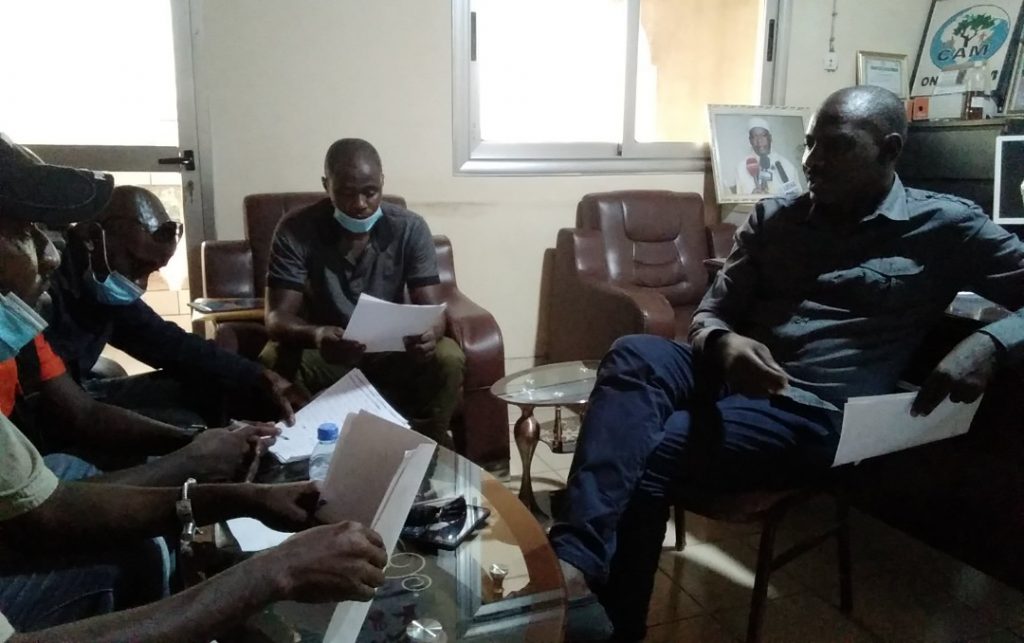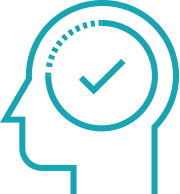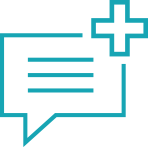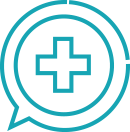Authors: Lior Miller and Sylla Boubacar
Guinea, which stretches from its capital city of Conakry on the coast of West Africa up into the Sahel region, has faced consistent health systems challenges, including high rates of maternal and under-five mortality and multiple concurrent infectious disease outbreaks.
To improve community health in Guinea and achieve universal health coverage, the Ministry of Health developed the National Community Health Policy in 2018. The centerpiece of that policy is the recruitment, training, and salaried payment of Community Mobilizers (Relays), or Relais Communautaire (RECO) and Community Health Workers, or Agent Santé Communautaire (ASC); but a myriad of financing and governance challenges remain to enable and sustain those workers.
To support the country’s efforts, the Accelerator convened civil society representatives and community health workers on November 30, 2021, to validate a community health domestic financing advocacy strategy, including key advocacy messages for sustainable financing of the community health policy and, in particular, payment of community health workers. The workshop included a simulation exercise for civil society to practice delivering their messages before meeting with decision-makers. We interviewed a few participants to learn more about their roles and issues affecting their communities and better understand what they most need to provide services in their communities more effectively.
You can also view a recording of the meeting here.
Meet the Participants


Where do you live?
I live in the health district of Dubreka in the sub-prefecture of Khorira. My role is to sensitize, accompany, and refer the sick to the health centers in our community.
How long have you been a community health worker?
I was recruited as a community health worker over five years ago by a health center during the Ebola vaccination project. The Gavi-alliance funded these activities through the Vaccination Support Committee.
Why is the National Community Health Policy important?
It makes it possible to reach the whole community from the ground up, focusing on sustainable primary care services. It brings health services closer to communities.
What are the main health issues facing members of your community?
- Distance of health facilities from certain neighborhoods and localities
- Lack of commodities for primary care and even curative care in some health posts
- Transportation issues due to lack of transportation means, especially given the limited number of community health relays/mobilizers that need to cover a large catchment area around a health center
Why did you decide to become a community health worker?
To raise awareness and bring health care closer to the community
What kind of services do you provide as a community health worker?
- Sensitization
- Accompaniment
- Following up on those who miss follow-up appointments, for example, children who don’t return for vaccination services.
- Community-based distribution of medications
What do you need to do your job better?
- Need for transportation means (e.g., motorcycle)
- Need for remuneration (to be covered by the government)
Is there anything else you’d like to share with us?
We thank the Accelerator for our participation in this high-level validation of the advocacy document. In addition, we would like to bring to your attention that we have been working without pay in our communities for more than seven months.

My role is to save lives and improve the health of the community. To raise public awareness in the fight against diseases by supporting the nearest health facilities. I live in the health district of Coyah at the Maneah health center.
How long have you been a community health worker?
I have been a health worker since 2016 in Coyah area/Maneah health center.
Why is the National Community Health Policy important?
It is important to point out, anyone who talks about health must talk about the community, and to talk about the community, we must raise awareness within this community. We can fight against diseases and achieve our routine health services goals (for example, vaccination and other services) with community health.
What are the main health issues facing members of your community?
- Lack of health posts in some localities prevents antenatal care coverage, assisted delivery, and routine vaccination improvement.
- Lack of transportation/logistics to reach the most remote areas
Why did you decide to become a community health worker?
I decided to be an ASC because I want to support my health center in community activities.
What kind of services do you provide as a community health worker?
- Supervise community mobilizers/relays
- Monthly reporting and liaising with the head of the health center
What do you need to do your job better?
- Work materials and equipment (motorcycle, boots, backpacks, raincoats, and a computer)
- Capacity building in IT and data management
Is there anything else you’d like to share with us?
We want support in terms of transportation and logistics to cover the entire health catchment area.

My role is awareness-raising, accompanying, and being a conduit between the health center and the community. I live in Coyah Health District at Maneah Health Centre.
How long have you been a community health worker?
I have been a Community mobilizer for seven years in the Maneah area.
Why is the National Community Health Policy important?
The National Community Health Policy saves lives and improves our health systems while strengthening our coverage capacities.
What are the main health issues facing members of your community?
- Lack of health infrastructure (for example, health posts) in some districts of the commune
- Lack of sufficient stock of medicines at the health center
- Poor management of certain diseases
- Lack of beds for some patients
Why did you decide to become a community health worker?
I decided to be a community health worker because it’s my way of contributing and helping my community save lives.
What kind of services do you provide as a community health worker?
- I raise awareness in the communities
- Facilitate patients’ access to the health center
- Accompany the sick
- Supervise and follow the children in programming at the center
What do you need to do your job better?
- Support for our travel within the community (bike and motorcycle)
- Please provide us with identification cards/uniforms
- Payment of incentive bonuses
Is there anything else you’d like to share with us?
Strengthening the capacity of community health workers through training is necessary.
My role is to sensitize the communities of my health post, follow up on those lost to follow up, refer them back to the health center, and link them with the community. I work in the Dubreka health district at Khori health center.
How long have you been a community health worker?
I have been a Relais Communautaire for ten years in Dubreka.
Why is the national community health policy important?
It involves the community in the day-to-day management of the health center and health post and calls for social and societal accountability in the community’s life.
What are the main health issues facing members of your community?
The non-support/non-payment of community health workers since the withdrawal of projects financed by development partners.
Why did you decide to become an ASC (community health worker)?
Since returning to my village, I’ve used my experiences in the fight against HIV to be involved in the community’s life.
What kind of services do you provide as a community health worker?
- Sensitization
- Social mobilization
- Follow-up and accompaniment
- Distribution of commodities
What do you need to do your job better?
- Include my salary in the municipality budget and not in a project budget
- Equip me with a means of transport (bike or motorcycle)
Is there anything else you’d like to share with us?
- Strengthen the capacities of community mobilizers (RECO) through training whenever necessary.
Looking Ahead
The Accelerator continues to work with civil society, community health workers, the National Directorate for Community Health and Traditional Medicine, partners, donors, and other stakeholders to ensure more effective implementation of Guinea’s community health program, including payment of community health workers.




